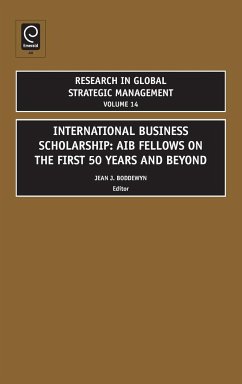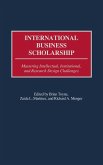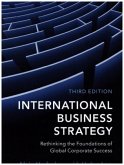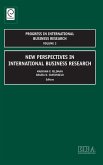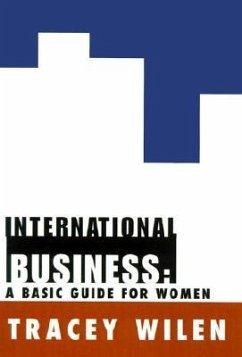The Academy of International Business (AIB) will be celebrating its first 50 years in 2008. Its members have contributed to the development of IB knowledge in countless numbers and manners (conference papers, journal articles, junior-faculty workshops, doctoral consortia, etc.) From among them, a smaller number have been elected to constitute the AIB Fellows Group which includes the top researchers, educators, and administrators in the IB field. Most of the 60 current Fellows have contributed to this edited volume as authors, co-authors and reviewers, including such noteworthy scholars as John Dunning, Alan Rugman and Yair Aharoni, among many others. Its dozen chapters examine aspects of the development of the field, evaluate our present state of knowledge and outline future lines of research. These chapters cover the growth of several functional areas (marketing, advertising, finance, etc.), review problems of methodological rigor in IB research, trace the history and evolution of IB studies and their likely future trajectories, raise ethical and moral issues about IB practices and evaluate the impact of major theories on IB studies. A couple of chapters cover the history of international business and of the AIB Fellows Group whose members stand behind these major contributions to IB knowledge. These chapters are generally brief in order to provide compact overviews and suggestions for AIB members, teachers, educators, students and doctoral candidates. They are original in their coverage of current IB issues and will provide a benchmark of where IB knowledge standstoday and will grow in coming years as the AIB looks forward to its second half-century of service to business, education and research.
Hinweis: Dieser Artikel kann nur an eine deutsche Lieferadresse ausgeliefert werden.
Hinweis: Dieser Artikel kann nur an eine deutsche Lieferadresse ausgeliefert werden.

